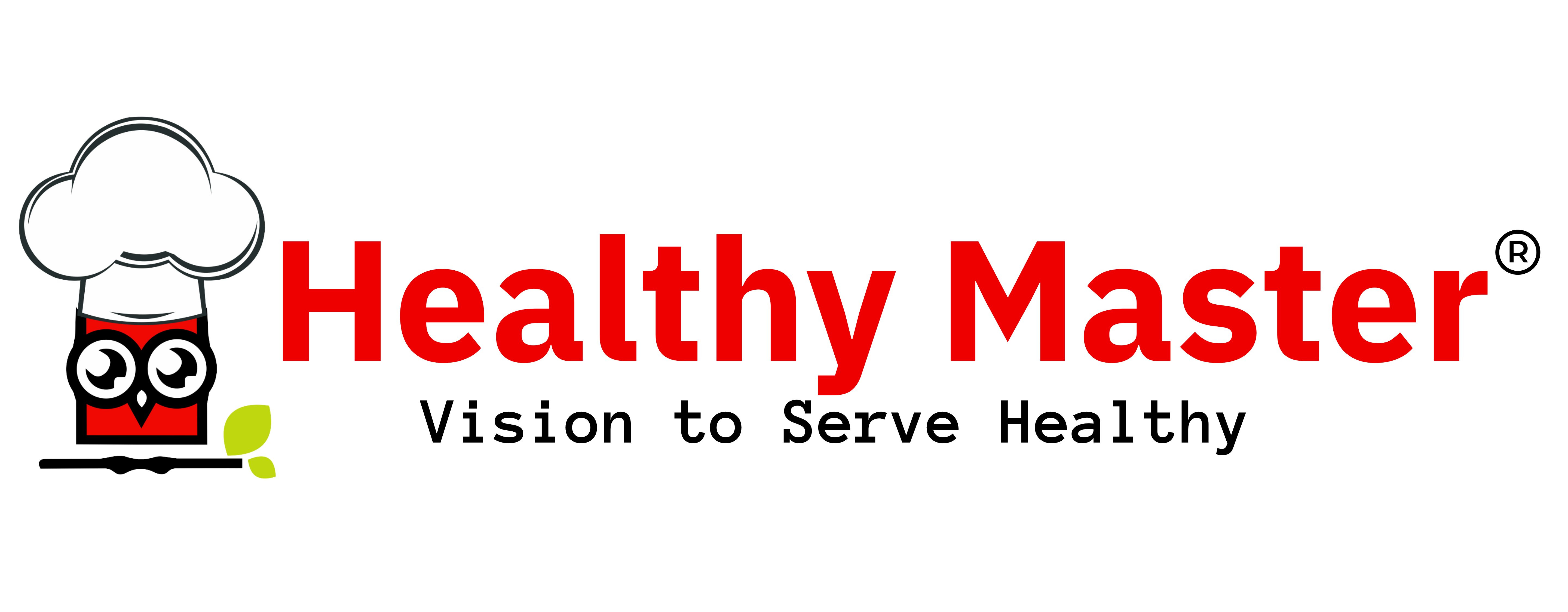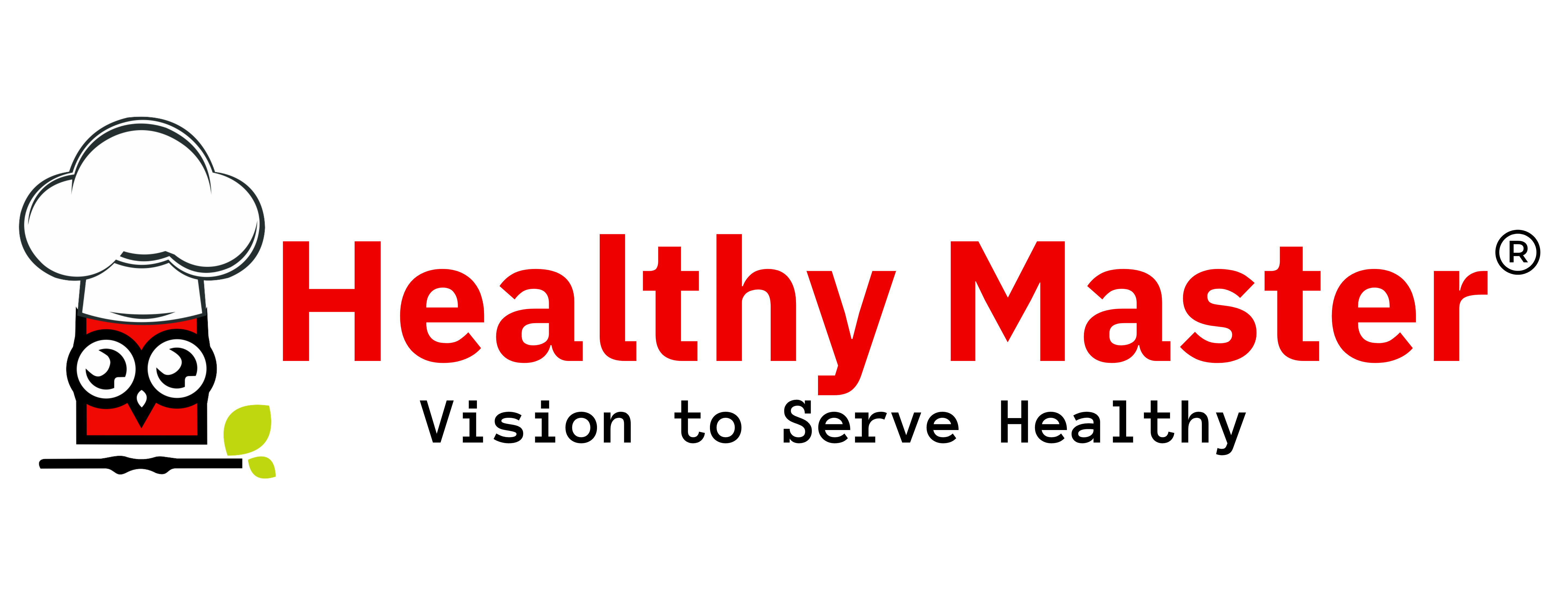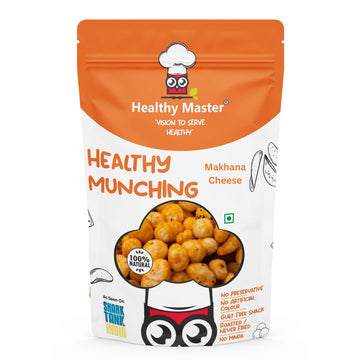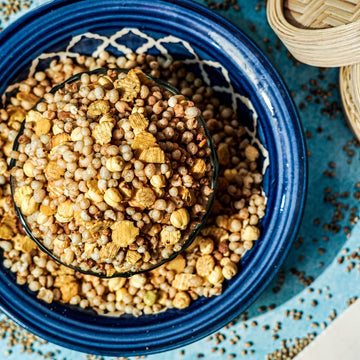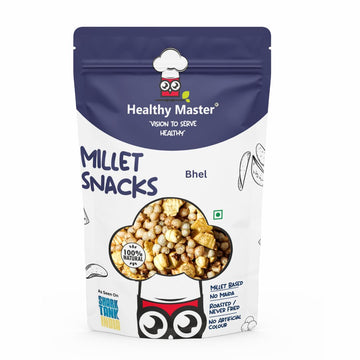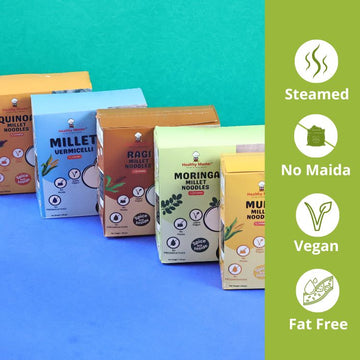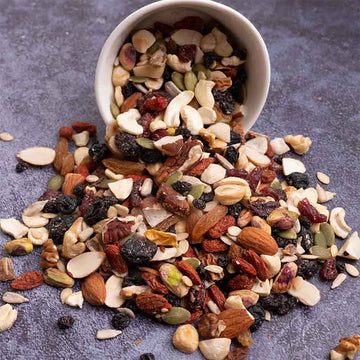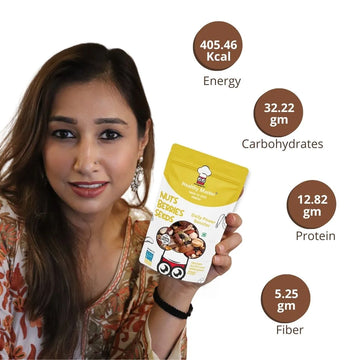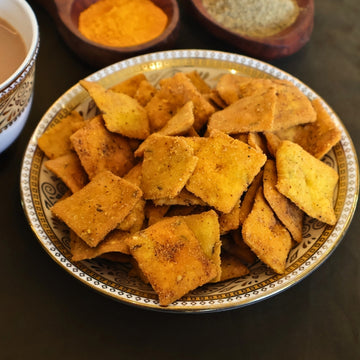8 Incredible Health Benefits Of Khumani (Apricots) - Healthy Master
by healthy master on Jul 20, 2022

Apricots are little, golden-orange dry fruits with velvety skin and flesh that is smooth and delicious but not overly juicy. Apricots are known by different names, like khumani, khubani, khurmani and jardalu in Hindi. So don't get confused!! Apricots are a rich source of fibre, proteins, vitamins, and minerals like potassium, phosphorus, and beta carotene, the latter of which the body converts to vitamin A. Additionally, they are packed with calcium, iron, magnesium, vitamin C, and folate. They are low in calories and fat, so you can easily add them to your diet. Thus, incorporating apricots into your diet provides incredible health benefits.
Nutritional Value of Apricots (Khumani)
Apricots are amazing dry fruits that are full of essential nutrients. They are nutrient-dense healthy snacks that are a good substitute for unhealthy snacks.
Vitamins
A great source of vitamin A (in the form of pro-vitamin A carotenoids), apricots are also a significant source of potassium, vitamin C, copper, and dietary fibre.
Fibre
Do you know that Five grams of fibre, or about 20% of your daily requirement, are present in three whole dry apricots?
Minerals
Due to their high potassium content, apricots contribute to your diet's supply of this vital mineral. In addition to maintaining the body's fluid equilibrium, potassium also ensures that the heart and brain are working properly. Potassium also aids in blood pressure management. Consuming 4-5 apricots supplies your body with a good amount of potassium. Besides potassium, apricots, or jardalu, also contain other minerals like iron, zinc, calcium, and manganese.
Additionally, 100 grams of dry apricot consumption provides you with 6% potassium and 12% of the daily recommended dose of vitamins A and C. The nutritional value of apricot makes it an important dry fruit. There is more than just the nutritional value that apricots have to offer. Buy premium quality dry apricots from Healthy Master.
There are 8 incredible health benefits attached to apricots. Keep scrolling down to find out about them.
8 Health Benefits of Khumani (Apricots)
1. Dry Khubani Benefits in Pregnancy
You could experience cravings for particular foods or snacks when pregnant, and dried apricots are a wholesome option if you're in the mood for something sweet. To avoid anaemia during pregnancy, which can have catastrophic effects on your unborn child, pregnant women are advised to increase their iron consumption. 10% of your daily iron requirements are found in a handful of dried apricots.
Additionally, apricots contain essential nutrients like folic acid, potassium, calcium, and magnesium that keep you healthy during pregnancy. The dried fruit also aids in controlling your digestive system, which is a typical issue during pregnancy and keeps your bowls from slowing down as the baby grows. Please be aware that consuming too many dried apricots can cause gastrointestinal discomfort. Thus, apricots are a vital dry fruit during pregnancy.
Also Read: 6 Dry Fruits For Pregnancy
2. Apricots benefits for Weight Loss
Fibre helps you feel full for extended periods, which undoubtedly aids in healthy weight loss. Apricot is a fibre-rich dry fruit, which makes it an important dry fruit in aiding the weight loss journey. Nutrients in apricots stimulate specific brain cells, known as tanycytes, that cause you to feel full and regulate your hunger. Additionally, it increases metabolism, which leads to weight loss.
Apricots are a great low-calorie addition to your weight loss diet because they only have 48 calories per 100 grams. Without increasing your calorie intake, apricots can keep cravings under control and keep you full for several hours.
3. Apricots Aid Diabetes Treatment
The fact that apricots are relatively low in calories and carbs—just 17 calories and 4 grams of carbs per fruit—is good news for diabetics. They may well be included in a diabetes diet. Furthermore, the fibre they contain helps to control blood sugar levels.
Additionally, apricots have a low glycemic index, which means that they affect your blood sugar levels gradually rather than rapidly. The fruit is also a good source of vitamin E, an antioxidant that helps to lower blood sugar levels.
Read Here: 9 Diabetic Friendly Snacks
4. Supports Eye Health
Apricots have vital nutrients that are essential for eye health. These are the A and E vitamins. Night blindness, a condition brought on by a lack of light pigments in the eyes, is prevented by vitamin A. In addition, vitamin E, a fat-soluble antioxidant, protects the eyes from harmful free radicals.
Additionally, beta carotene gives apricots their yellow-orange hue. Since it is a precursor to vitamin A, a person's body may be able to turn it into that vitamin. Lutein and zeaxanthin are two other important carotenoids found in apricots. The lenses and retinas of the eyes include them.
Zeaxanthin, beta carotene, lutein, and vitamins E and C are all abundant in apricots. These vitamins and minerals support better eye health and shield them from harm.
5. Improves Skin Health
Apricots provide immense skin benefits. Environmental factors are one of the main causes of wrinkles and skin deterioration.
In particular, an individual can combat skin deterioration by eating a healthy diet rich in antioxidants, which apricots provide. This dry fruit contains vitamins E and C. These vitamins aid with skin defense. Vitamin C, in particular, protects the body from UV rays, and environmental toxins and prevents wrinkles.
6. Apricot Seeds For Cancer Treatment
Antioxidants abound in apricots. Our bodies are shielded from harmful free radicals and cell damage by carotenoids and antioxidants. A and C, two potent antioxidant vitamins that fight cancer and strengthen the immune system, are also abundant in apricots. Additionally, B17, a substance found in apricot seeds, has the power to combat cancer and slow down its capacity for mutation.
7. Beneficial for Heart Health
Apricots' high vitamin C content, potassium content, and dietary fibre all support cardiovascular health. Due to their high content of antioxidants, including vitamin C and lycopene, apricots lower the risk of cardiovascular diseases such as atherosclerosis, heart attacks, and strokes. Potassium lowers bad cholesterol (LDL) and lowers blood pressure, lowering the risk of heart attacks and enhancing cardiovascular health.
Read Here: 4 Dry Fruits For Heart Patient
8. Treatment of Anemia
Because apricots are rich in iron and copper, they aid in the production of haemoglobin and the treatment of anaemia.
Anemia, which is just a lack of iron in the body, can cause weakness, weariness, dizziness, problems with the digestive system, and general metabolic malfunction. Because apricots include iron and copper, they are an excellent food for boosting metabolism and maintaining a healthy body.

5 Amazing Ways to Take Khumani (Apricots)
Flavonoids make up the majority of the antioxidants in apricots. Apricots help to shield the body from oxidative stress, which is linked to several chronic illnesses and makes apricots beneficial for diabetes.
There are several amazing ways to include apricots in your diet, like
- Consume apricots as a snack
- Mix khubani into granola
- Include in cakes, or pastries
- Add into yogurt or salad
- Use in salsa, jams, or preserves
Takeaway
Apricots are a wholesome, nutrient-rich snack. They are rich in powerful antioxidants, dietary fibre, vitamins, and minerals. They support blood circulation, weight loss, and diabetic management. Additionally, they might improve stomach, bone, heart, and visual health. It's simple to add fresh or dried apricots to salads, yoghurt, or major dishes. However, excessive consumption may have unfavorable side effects. Limit your intake and consult a doctor if you suffer any negative effects. Buy premium quality dry apricots from Healthy Master.
Frequently Asked Questions of Health Benefits Of Khubani
A. Apricots improve the metabolism of the body. Thus, the consumption of apricots also facilitates healthy weight loss.
A. The glycemic index of dry apricot is 30, which makes it a low glycemic fruit. Thus, it is suitable for diabetic patients.
A. Eating apricots every day improves eye vision, metabolism, and skin health, and also protects you against diabetes and heart disease.
A. It is recommended to eat 30-40g of apricots per day for a healthy, balanced lifestyle.
A. Khumani is a dry apricot.
A. Khumani, also known as apricots, is healthy. Apricots have a high amount of vitamin C, as well as potassium and dietary fibre which contribute to good cardiovascular health.
A. The dry fruits that are best for weight loss are walnuts, dry apricots, prunes, dates, raisins, and almonds.
A. Eating apricots in excess may lead to gastrointestinal discomfort, nausea, sweating, and dizziness.
A. As apricots are high in fibre and carry condensed concentrations of sugar, it is recommended not to eat apricots before bed.
A. Dry apricots are a good choice when you want a low sugar dry fruit.
A. Due to their abundance of vital fatty acids and vitamin A, apricots are effective at moisturising dry, irritated skin. The fruit shields you from UV light damage because of its high vitamin C content, and the carotene it contains shields you from sunburn.
A. The total intake of mixed nuts and dried fruits should not exceed 20 grams.
A. The best time to eat apricots is early morning on empty stomach.
A. Yes, apricots can cause gas if you eat too much.
A. Yes, diabetic can eat apricots due to their low glycemic index.
